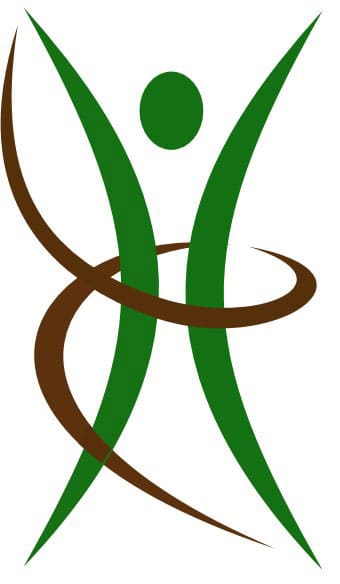Women’s Health
A woman’s life is one of change: puberty, menstruation, pregnancy and labour, breastfeeding and motherhood, perimenopause, menopause and postmenopause. During these life stages, a woman’s hormonal balance significantly influences her state of health.
In past tribal societies, shared events celebrated the phases of a woman’s life. In today’s Western culture, the ageing celebration is a continuum of griping and grumbling.
Who wants to look forward to feeling awful; hot flashes, night sweats, fatigue, depression, loss of libido, headaches and irregular menses, which may plague a woman for years.
A change of life cannot be avoided, but how a woman experiences these changes can be influenced by knowing what her body is telling her and interpreting the information.
We Assist With

Breast Health
Breast tissue is delicate; the breasts are like the “canary in the coal mine.” They can tell us what is going on in our environment. The breasts connect to various body systems, and breast tissue is particularly responsive to estrogen and progesterone, which are hormones produced by the ovaries and adrenal glands.
The proper balance of estrogen and progesterone is not only essential for maintaining healthy breast tissue; it is also necessary that the estrogen receptor sites are available for natural estrogen to bind. Today’s environment is polluted with synthetic estrogens called “Xenoestrogens,” which are found in herbicides, pesticides and petroleum by-products such as plastics. They are also found in make-up, haircare and skincare products. These synthetic estrogen mimickers may cause havoc to a woman’s health if they bind onto the estrogen receptor sites.
Screening for changes in breast tissue is an essential component of being proactive. Traditional screening methods such as mammography, ultrasound, breast self-examination, and MRI’s are looking for “structural changes” in breast tissue. Computerized Digital Infrared Thermography, another screening tool, assesses “functional changes” that occur before any tissue structural change occurs.
We test for the proper balance of estrogen and progesterone.
If you are interested in Thermography, contact our office, and we will inform you of where the next clinic is taking place.

Prenatal Nutrition and Care
Bringing a child into the world is an important decision that affects not only the baby’s health but also the mother. Ideally, prenatal care should begin when one decides to have a baby. Included with this is preparing the body physically and the mind mentally.
No two new mothers are alike as their body chemistries are different, and their health needs vary. For this reason, my care recommendations are “mom specific.”
Once pregnant, good nutrition along with a regime of recommended supplements help ensure both baby and mom are healthy. These elements also help meet the changes in a new mother’s dietary demands and support the pregnancy, including delivery and lactation and the fetus’s growth and development. Besides good nutrition, I recommend reflexology and massage therapy for relaxation and comfort throughout each trimester of pregnancy.

Postpartum Care
It takes three years for a woman’s body to recover from pregnancy, delivery and lactation. The early months of postpartum recovery can be a roller coaster of emotions, energy and physical healing. Tissues have to heal, muscles have to strengthen, and hormones have to rebalance, all while caretaking for a newborn’s demands.
Proper nutrition is essential for ensuring the best development of a newborn’s brain and nervous system, immune system and skeletal system. A healthy, proactive immune system supported by proper nutritional supplementation helps avoid allergy symptoms in a young child.

Perimenopause and Menopause
Perimenopausal changes may start occurring as early as age thirty-five. These changes, usually starting three to six years before the last period, result from wildly shifting hormones. The feeling is like going through puberty all over again.
Perimenopause is when most of the dramatic symptoms occur. By the time a woman reaches menopause, the body has adjusted to the changes and symptoms mellow.
Every woman will go through hormonal fluctuations such as high estrogen, low progesterone or low estrogen and high progesterone or perhaps a deficiency of both; it cannot be avoided. Like pregnancy, you have to go through the pains of change, but you have a new beginning in the end.
Menopausal symptoms such as hot flashes, vaginal dryness and depression are messages from the hormones saying they are not incorrect balance. The majority of women who experience mild to moderate symptoms may require an adrenal and thyroid check, along with a change in lifestyle and natural choices in supplements to help the body rebalance.
The changing years of a woman’s life should not be a dreaded part of her life’s journey, but instead, a time to embrace and celebrate the wisdom and lives she has touched through her maternal gifts.

Weight Loss and More
Weight gain is an epidemic in our western society today. The World Health Organization has made many announcements concerning our population’s excessive weight gain; men, women, and particularly children are all at risk. Being overweight does put the body and its structures at a higher risk for many diseases, including diabetes, high blood pressure and other cardiovascular disorders, respiratory distress and unwanted stress on bones and joints.
The weight loss program I design includes a nutritional assessment and teaching the understanding of how to eat the proper “fuel” and the removal of foods that do not contribute best to the body. Our program is not a short term diet but rather a long term lifestyle nutritional change.
Weight gain for many women can also result from hormonal imbalances, particularly thyroid, adrenal or estrogen/progesterone imbalances. Through assessment techniques, we can identify or eliminate this possibility.
